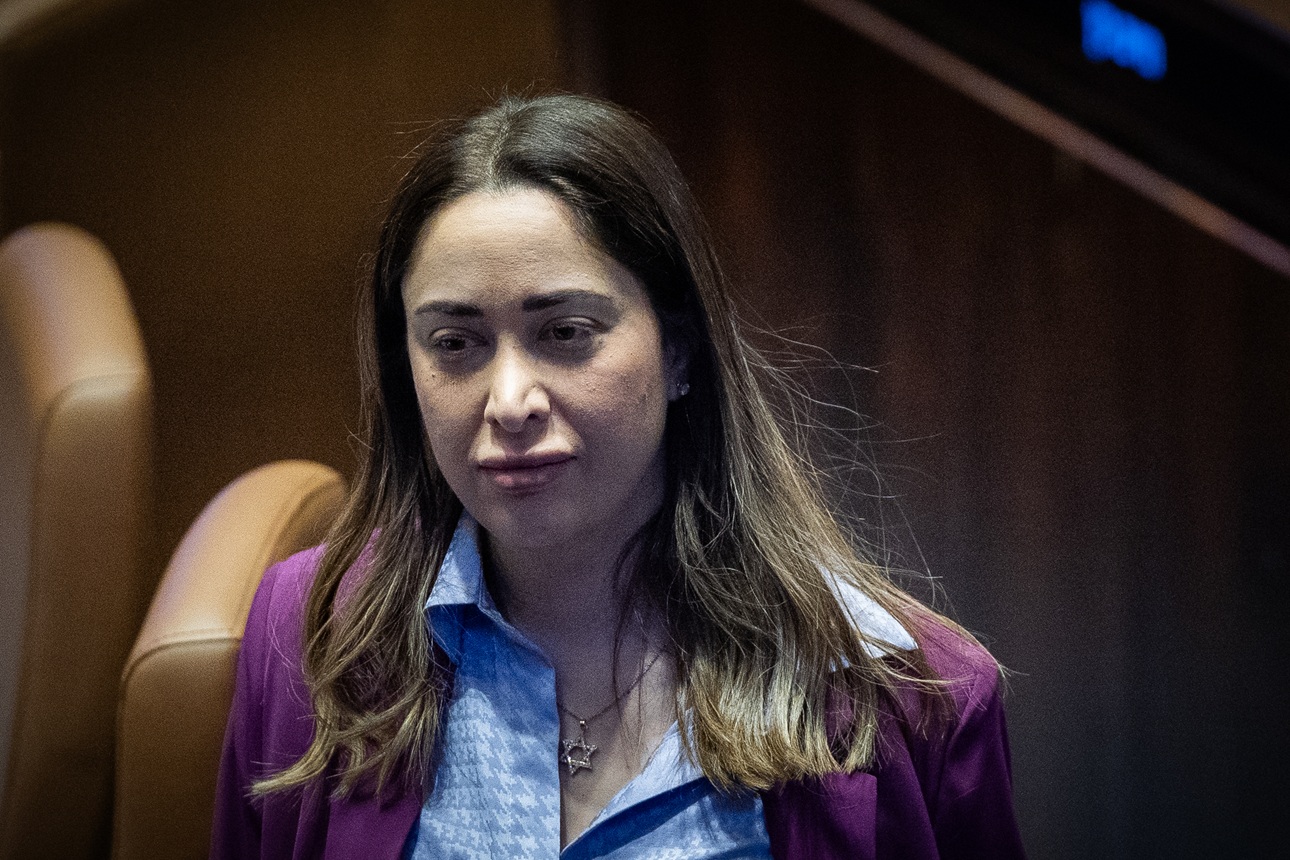ZERO Women Running Ministries: A Government Out of Step with the Law and the Public
Last week, it was announced that a man would lead Israel's Ministry of Social Equality—the ministry responsible for, among other things, gender equality. This, on its own, would not be problematic, but it leaves the total number of women Directors General of government ministries at zero. This lack of representation is not only misaligned with public opinion, it is also a blatant violation of a Supreme Court ruling and reflects disregard for the rule of law.

May Golan, Minister for Social Equality and Advancement of the Status of Women | Photo by Yonatan Sindel/Flash90
Last week, we saw an astonishing announcement: Israel's Minister for Social Equality will appoint a man to serve as Director General of her ministry—at a time when there are zero women serving as directors general across more than thirty government ministries. This statistic has become emblematic not only of the government’s stance toward women’s representation and the value of equality, but also of a broader defiance of the law, which mandates adequate representation of women in the public service.
Beyond the principles of reason and the commitment to equality, less than three months ago the Supreme Court ruled that the state is not meeting its obligation for equal representation of women. One would think that such a clear-cut ruling—emphasizing the worsening underrepresentation of women in the current government—would prompt a course correction.
And yet, since that decision, five directors general have been appointed—all of them men. Can one truly imagine that no suitable woman could be found to lead the Ministries of Finance, Innovation, Environmental Protection, Communications, or Defense? Of course this is not the case. This simply reflects utter disregard for the Supreme Court's ruling and for obligations under the law, as well as a broader lack of commitment to women's representation. Rather than publicly declaring, as in other recent cases, that ministers do not intend to comply with the Court’s rulings, in this case they simply ignore it.
Now this problematic pattern has been joined by the announcement of the leadership for Ministry for Social Equality. The ministry, whose very mission is grounded in the value of equality—the one that is tasked within the government with advancing the status of women and gender equality—will now also be led by a man. In other words, instead of setting an example, living up to its mandate, and even calling other ministers, the Ministry for Social Equality is itself joining in the blatant and contemptuous disregard for the law.
In a reality where there are zero female directors general in government ministries, no further data is needed to illustrate the scope of the discrimination. But if historical context is still required, data collected by Israel Democracy Institute researchers reveals that since 2003, only 38 women have been appointed director general out of 243 appointments—a mere 16%. This figure is far from impressive for any Israeli government, though even that is higher than zero. In a discussion held this week by the Knesset Committee for the Advancement of the Status of Women and Gender Equality, even more troubling data were presented by the Knesset Research and Information Center regarding the representation of Haredi women, Arab women, and women of Ethiopian descent in senior public service roles—often in the single digits.
This reflects yet another example of a government that is out of step with the public. A recent IDI study found that 71% of the public believe the number of women in the Knesset, in the government, and in senior public positions should be increased, with the goal of achieving equal representation between men and women. Only 25% expressed opposition. This is not a partisan issue – across the political Left (81%), Center (90%) and Right (60%), a majority of Israelis supported increasing the number of women in public service roles.
The Supreme Court ruled in its decision that the government must formulate, by August, guidelines to ensure appropriate representation for women in political appointments, including director general posts. As things currently stand, it seems the government will first need to be reminded of its basic obligation to the rule of law before it can even begin drafting such guidelines.
